
GEOSCIENCES JOURNAL
Scope & Guideline
Innovating Solutions for a Sustainable Future.
Introduction
Aims and Scopes
- Tectonics and Earth Processes:
Investigates the dynamics of Earth's crust, including fault mechanics, seismic activity, and tectonic evolution, with a focus on regions such as Korea and the broader Eurasian plate. - Geochemistry and Mineralogy:
Explores the chemical composition and mineralogical characteristics of geological materials, emphasizing petrogenesis, mineral exploration, and environmental geochemistry. - Volcanology and Seismology:
Studies volcanic activity and seismic events, including the physical processes behind eruptions and earthquakes, and their effects on surrounding environments. - Hydrogeology and Aquifer Studies:
Focuses on groundwater systems, including karst aquifers, groundwater quality, and the impact of human activities on hydrological processes. - Remote Sensing and Geophysical Techniques:
Utilizes advanced geophysical methods and remote sensing technologies for subsurface imaging, environmental monitoring, and geological hazard assessment. - Paleoenvironmental and Quaternary Studies:
Examines past environments and climate changes through sediments and fossil records, providing insights into historical geologic processes.
Trending and Emerging
- Climate Change and Environmental Impact Studies:
Research focusing on the impacts of climate change, such as hydrological changes and wildfire effects on ecosystems, has gained traction, highlighting the urgency of addressing environmental issues. - Geophysical and Remote Sensing Innovations:
There is an increasing trend in the application of innovative geophysical techniques and remote sensing for subsurface exploration and monitoring, indicating a shift towards technology-driven research. - Natural Hazards and Risk Assessment:
Studies on natural hazards, including earthquake prediction and volcanic risk assessment, have become more prominent, reflecting a growing societal concern for disaster preparedness and resilience. - Integrated Approaches in Geosciences:
The trend towards interdisciplinary research, integrating geochemistry, geology, and geophysics, is emerging as a significant focus, promoting a more holistic understanding of Earth systems.
Declining or Waning
- Geological History and Stratigraphy:
There has been a notable decrease in studies specifically focused on stratigraphic classifications and geological history, possibly overshadowed by more applied research themes. - Traditional Geology Methods:
The reliance on classical geological methodologies, such as basic field mapping or standard mineral identification techniques, appears to be waning in favor of more advanced and integrated approaches. - Mineral Resource Exploration:
Research related to conventional mineral resource exploration has diminished, reflecting a potential shift towards sustainability and environmental impact assessments.
Similar Journals

Journal of Earth Science
Bridging research and real-world challenges in Earth science.Journal of Earth Science, published by the China University of Geosciences, Wuhan, is a leading journal in the field of Earth and Planetary Sciences, recognized for its significant contributions to the understanding of geological processes and environmental challenges. With an impressive Q1 ranking among Earth and Planetary Sciences journals and a strong position at Rank #39/195 in Scopus, this journal not only showcases high-quality research but also serves as a crucial platform for disseminating innovative findings, spanning a broad spectrum of topics from geophysics to climate change. The journal adopts an open access model, which enhances the visibility and accessibility of research articles published from 2009 to 2024, thereby facilitating collaboration and knowledge sharing among the global scientific community. With its commitment to advancing geosciences, Journal of Earth Science is invaluable for researchers, professionals, and students alike, eager to stay informed and contribute to ongoing discussions in this dynamic field.
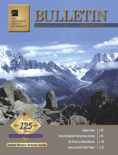
GEOLOGICAL SOCIETY OF AMERICA BULLETIN
Your Gateway to Premier Geological DiscoveriesThe Geological Society of America Bulletin (GSA Bulletin), with ISSN 0016-7606 and E-ISSN 1943-2674, is a premier scholarly journal published by Geological Society of America, Inc. Based in the United States, this journal has been a cornerstone of geological research since its inception in 1890, making significant contributions to the understanding of Earth sciences over more than a century. Recognized for its rigorous peer-review process, the GSA Bulletin currently holds a prestigious Q1 ranking in Geology, positioning it among the top 14 journals in Earth and Planetary Sciences in terms of Scopus ranking, reflecting the high quality and impact of the research it publishes. Researchers, professionals, and students alike benefit from its comprehensive coverage of geological topics, including sedimentology, volcanology, and paleontology, which supports the advancement of knowledge in the geosciences. While the journal is not open access, it continues to provide a vital platform for innovative research and critical discussions that shape the future of geology.
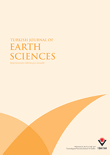
TURKISH JOURNAL OF EARTH SCIENCES
Innovating Insights in Earth and Planetary SciencesTURKISH JOURNAL OF EARTH SCIENCES, published by the Tubitak Scientific & Technological Research Council Turkey, is a premier platform dedicated to advancing the field of Earth and Planetary Sciences. With an ISSN of 1300-0985, this journal has been a significant contributor to the international scientific community since its inception in 2002, and is set to continue publishing groundbreaking research through 2024. As a recognized journal in the Q2 quartile of Earth and Planetary Sciences, it ranks #98 out of 195 in its category according to Scopus metrics, positioning it within the 50th percentile of its field. The journal emphasizes peer-reviewed research, providing invaluable insights that facilitate scholarly discourse and promote rigorous investigation into various aspects of the Earth sciences. Although it does not currently offer open access, the journal remains a vital resource for academics, professionals, and students seeking to deepen their understanding of geological phenomena and contribute to the advancement of this essential discipline.

Solid Earth Sciences
Transforming knowledge into action for Earth's future.Solid Earth Sciences is a dynamic open-access journal published by Elsevier, dedicated to advancing our understanding of the Earth's subsurface processes and materials. Since its inception in 2016, the journal has established itself as a vital resource for researchers and professionals in the fields of geochemistry, petrology, geology, geophysics, and geotechnical engineering, achieving a notable Q2 ranking in multiple categories as of 2023. With an ISSN of 2451-912X, the journal aims to disseminate high-quality research that enhances knowledge of earth surface processes and the intricate interactions within our planet's systems. The journal is indexed in Scopus, showcasing an impressive rank in various sub-disciplines, with a rank of #96 in Geology and a noteworthy percentile in Earth and Planetary Sciences. Solid Earth Sciences offers a platform for innovative studies, comprehensive methodologies, and cutting-edge technological advancements that cater to a global audience of scientists, academics, and students. With its commitment to open access, it fosters wider dissemination and impact of research outcomes, ensuring that pivotal discoveries reach stakeholders and contribute to real-world applications.
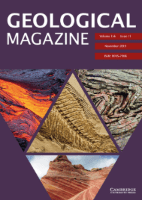
GEOLOGICAL MAGAZINE
A Legacy of Excellence in Geological ScholarshipGEOLOGICAL MAGAZINE, published by Cambridge University Press, is a premier journal in the field of geology, renowned for its rich legacy since 1864 and ongoing contributions to Earth and Planetary Sciences. With an impressive Q1 ranking in Geology and a Scopus rank of #70 out of 321 journals, it holds a significant position within the academic community, appealing to researchers, professionals, and students alike. The journal covers a wide array of topics, ensuring a comprehensive platform for the dissemination of cutting-edge geological research. Although it does not offer open access, it remains a vital resource for those seeking to stay abreast of advancements in the field. With an enduring commitment to quality, GEOLOGICAL MAGAZINE stands as an essential outlet for scholarly communication and serves as a catalyst for academic discourse within the geological sciences.
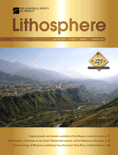
Lithosphere
Exploring Earth's Secrets, One Study at a Time.Lithosphere, published by GEOSCIENCEWORLD, is a premier open access journal that has been at the forefront of geological research since its inception. With the ISSN 1941-8264 and the E-ISSN 1947-4253, this journal serves as a vital resource for researchers, professionals, and students interested in Earth and planetary sciences, particularly in the field of geology. Its impressive ranking of Q2 in the 2023 category indicates its vital role in disseminating high-quality, impactful research. The journal’s commitment to open access since 2018 enhances its reach, providing global accessibility to cutting-edge studies that span a diverse range of geoscientific topics, from tectonics to sedimentology. With Scopus Rank #88 out of 321 in Earth and Planetary Sciences, it offers a strong platform for scholars to share their findings and engage with the latest advancements in the discipline. As the journal continues its convergence from 2009 to 2024, Lithosphere remains a crucial publication for those striving to deepen their understanding of Earth's systems.
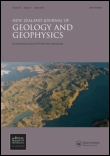
NEW ZEALAND JOURNAL OF GEOLOGY AND GEOPHYSICS
Deepening Understanding of Earth's Dynamic Systems.NEW ZEALAND JOURNAL OF GEOLOGY AND GEOPHYSICS, published by Taylor & Francis Ltd, stands as a prominent forum dedicated to the interdisciplinary exploration of geological and geophysical phenomena. With an impact factor that situates this journal in the prestigious Q1 category across key subjects—namely Earth and Planetary Sciences, Geology, and Geophysics—it is a critical resource for researchers, professionals, and students alike. The journal has been operational since 1958 and continues to contribute valuable insights into the complexities of the Earth's processes. Although it does not currently offer Open Access options, its broad readership benefits from an extensive archive of high-quality research findings that span from 1958 to 2024. Located in the United Kingdom, the journal remains a pivotal player in advancing the understanding of Earth's systems, making significant contributions to both academic inquiry and practical applications in the field.

DOKLADY EARTH SCIENCES
Bridging Gaps in Earth Science UnderstandingDOKLADY EARTH SCIENCES is a reputable journal published by MAIK NAUKA/INTERPERIODICA/SPRINGER, focusing on the dynamic field of Earth and Planetary Sciences. With an ISSN of 1028-334X and E-ISSN 1531-8354, this journal offers a platform for researchers to disseminate their findings and insights that contribute to our understanding of Earth systems over a continuous publishing span from 1998 to 2024. It currently holds a Q3 quartile ranking in the Earth and Planetary Sciences category, reflecting an emerging yet significant impact within its field, evidenced by its Scopus ranks where it stands at 123rd in general Earth sciences and 113th in miscellaneous Earth sciences. DOKLADY EARTH SCIENCES aims to bridge research gaps and foster collaboration among a diverse audience including researchers, professionals, and students committed to advancing knowledge in geoscience. The journal stands as a vital resource for those seeking to explore contemporary challenges and innovations within the realm of Earth sciences.

Russian Journal of Pacific Geology
Unveiling the Secrets of the Pacific BasinThe Russian Journal of Pacific Geology is a pivotal resource in the realm of Earth sciences, published by PLEIADES PUBLISHING INC. With an ISSN of 1819-7140 and an E-ISSN of 1819-7159, this journal has established itself as a significant publication for researchers, professionals, and students who explore the intricate geology of the Pacific region. Covering a wide array of topics including Geochemistry, Petrology, Geology, Geophysics, Oceanography, Paleontology, and Stratigraphy, the journal's relevance is underscored by its categorization within Q3 quartile rankings across multiple disciplines in the 2023 metrics. Operating from the United States, its influential publications span from 2007 to 2024, attracting a diverse audience dedicated to advancing the geological sciences. Although not an open access journal, it serves as a valuable repository of knowledge, presenting original research, reviews, and critical discussions that enhance scholarly discourse. The journal is recognized within the global scientific community, addressing significant geological challenges while fostering collaboration and innovation among scholars in the Earth and Planetary Sciences.

JOURNAL OF THE GEOLOGICAL SOCIETY OF INDIA
Advancing geological knowledge, one study at a time.JOURNAL OF THE GEOLOGICAL SOCIETY OF INDIA, published by Springer India, serves as a pivotal platform for researchers and practitioners in the field of geology. Established in 1979, this journal has been instrumental in advancing geological research throughout India, showcasing both regional studies and cutting-edge global research. With its Category Quartile ranking of Q3 in the geology category for 2023, and a significant Scopus rank of 171 among 321 journals in Earth and Planetary Sciences, it remains a respected source of scholarly activity. The journal is dedicated to the dissemination of original research articles, reviews, and case studies that encapsulate the dynamic scope of geological science, thus contributing to the understanding of geological phenomena. Although currently not offering open access, the journal maintains a commitment to high-quality scholarship and aims to engage a diverse readership, enhancing the knowledge and practice of geology across various disciplines.